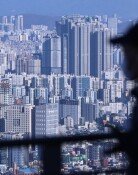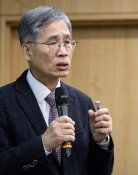Gov’t allows leave for students protesting medical school quota increase
Gov’t allows leave for students protesting medical school quota increase
Posted October. 07, 2024 09:47,
Updated October. 07, 2024 09:47
On Sunday, the Ministry of Education announced plans to normalize medical school year operations to allow medical students to take a leave of absence on the condition of returning to school the following year. The ministry said that taking semesters off in collective protest is not permitted. However, schools decided to approve the leave of absence if students promised to return to school the following year, provide proof of illness, or take a language course overseas. They are also promoting plans to shorten the medical school curriculum from six years to five years. If the leave of absence is approved, next year's first-year pre-med classes at medical schools across the country will be attended by approximately 7,500 students. The one-year reduction in the educational curriculum also raises concerns about education quality.
The national second-semester enrollment rate in medical schools recorded a mere 3.4%. On Monday, Seoul National University decided it would be challenging to provide normal education under these circumstances and approved medical students' leave of absence applications. Two days later, however, on Wednesday, the Ministry of Education dispatched an audit team to Seoul National University and issued a warning of severe disciplinary action. On Friday, the Ministry summoned the presidents of 40 universities with medical schools and warned not to permit leave of absence. When it became evident that leave of absence was inevitable among universities, the Ministry reversed its position two days later, claiming that they would approve leave of absence if the schools could prove that it was not done in collective action.
Universities point out that the decision forces students to take a leave of absence, relaying the responsibility of approving the absence to universities. They claim that the decision itself cannot be a fundamental solution to address the issue. The Ministry is asking students to submit a written promise that they would return to school the following year, holding them accountable for not attending school. They even warned that failure to return would result in repeated grades or expulsion. The ministry has also gone too far by restricting universities’ autonomy, connecting the approval rate for leave of absence with financial support in the following year, and revising school regulations so that leave of absence cannot exceed two semesters.
Reducing the 6-year curriculum of two years of pre-med and four years of medical school to five years is ludicrous. The government claims that the purpose is to minimize the medical gap due to the absence of medical school graduates next year. Still, it is a pretentious idea that only focuses on the number of doctors rather than quality. What if medical students do not return next year- will they consider taking another year off? Such absurd measures only reinforce the argument that increasing the number of medical school student quota is a failed policy. The situation has grown so serious while neglecting the issue for eight months that it has become even more challenging to find the right solution.
Headline News
- Joint investigation headquarters asks Yoon to appear at the investigation office
- KDIC colonel: Cable ties and hoods to control NEC staff were prepared
- Results of real estate development diverged by accessibility to Gangnam
- New budget proposal reflecting Trump’s demand rejected
- Son Heung-min scores winning corner kick







